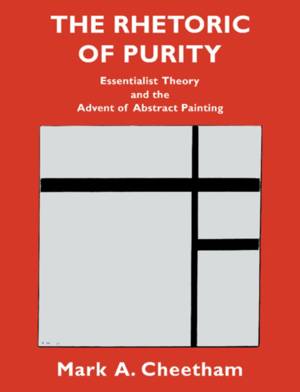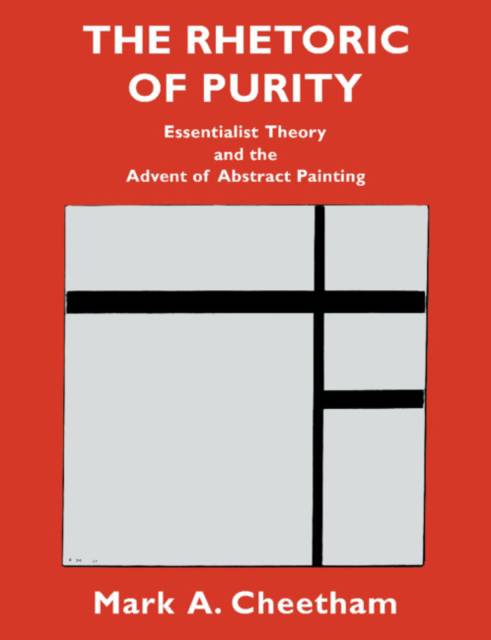
- Retrait gratuit dans votre magasin Club
- 7.000.000 titres dans notre catalogue
- Payer en toute sécurité
- Toujours un magasin près de chez vous
- Retrait gratuit dans votre magasin Club
- 7.000.0000 titres dans notre catalogue
- Payer en toute sécurité
- Toujours un magasin près de chez vous
63,45 €
+ 126 points
Description
In The Rhetoric of Purity, Mark Cheetham explores the historical and theoretical relations between early abstract painting in Europe and the notion of purity. For Gauguin, Serusier, Mondrian and Kandinsky - the pioneering abstractionists whose written and visual works Cheetham discusses in detail - purity is the crucial quality that painting must possess. Purity, however, was itself only a password for what Cheetham defines as an 'essentialist' philosophy inaugurated by Plato's vision of a perfect, non-mimetic art form and practised by the founders of abstraction. The essentialism of late nineteenth-century French discussion of 'abstraction', Cheetham argues, also infects the work of Mondrian and Kandinsky. These visions of abstraction are central to the development of Modernism and are closely tied to the philosophical traditions of Plato, Hegel and Schopenhauer. As a conclusion, Cheetham provides a postmodern reading of Klee's rejection of the rhetoric of purity and claims that Klee's refusal speaks to contemporary concerns in visual theory and culture. By acting as an antidote to the seductive appeal of purity in art and society, Cheetham's final critique of the trope of purity seeks to preserve the possibility of visual discourse itself.
Spécifications
Parties prenantes
- Auteur(s) :
- Editeur:
Contenu
- Nombre de pages :
- 220
- Langue:
- Anglais
- Collection :
Caractéristiques
- EAN:
- 9780521477598
- Date de parution :
- 26-08-94
- Format:
- Livre broché
- Format numérique:
- Trade paperback (VS)
- Dimensions :
- 190 mm x 251 mm
- Poids :
- 421 g

Les avis
Nous publions uniquement les avis qui respectent les conditions requises. Consultez nos conditions pour les avis.






